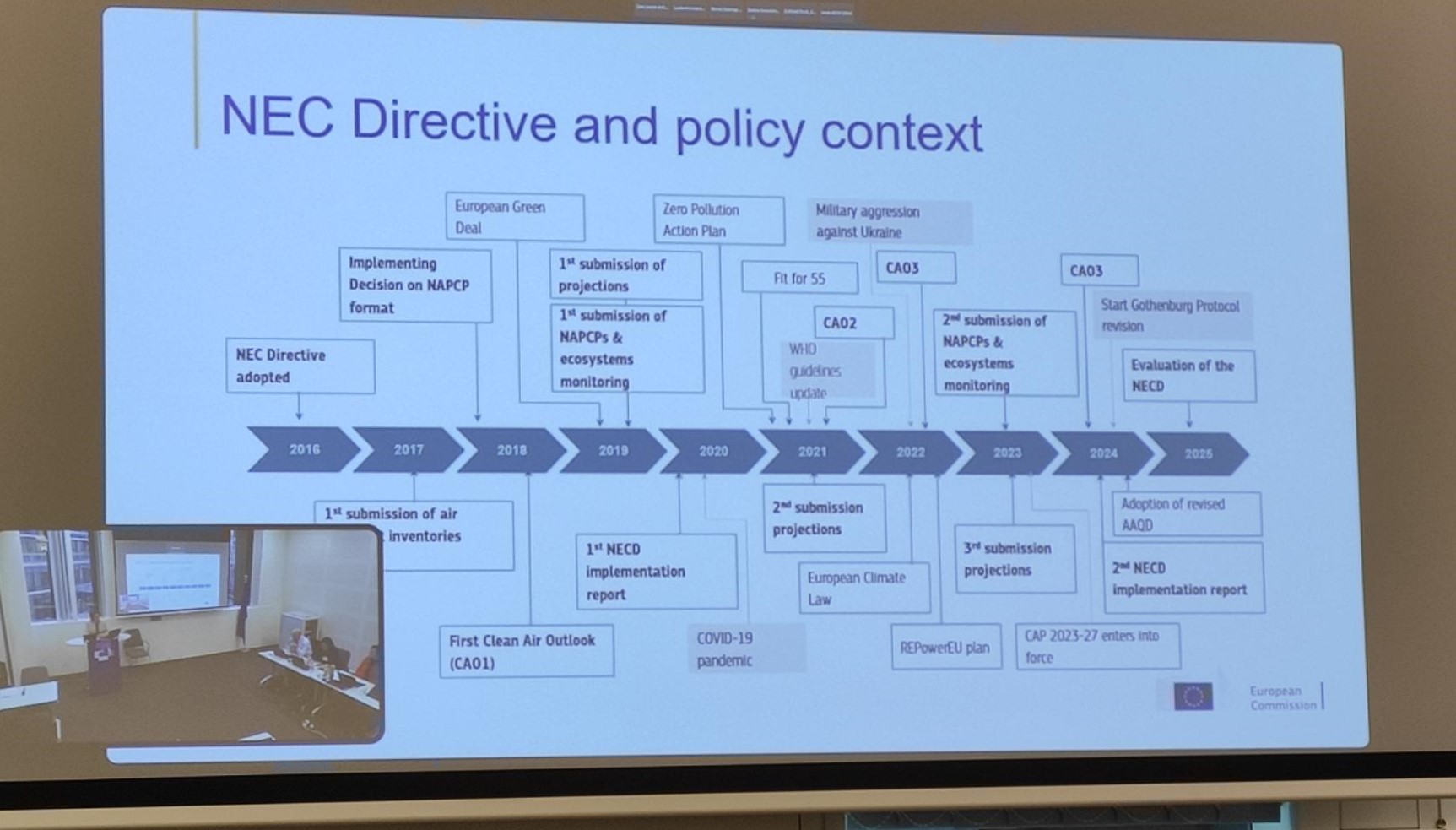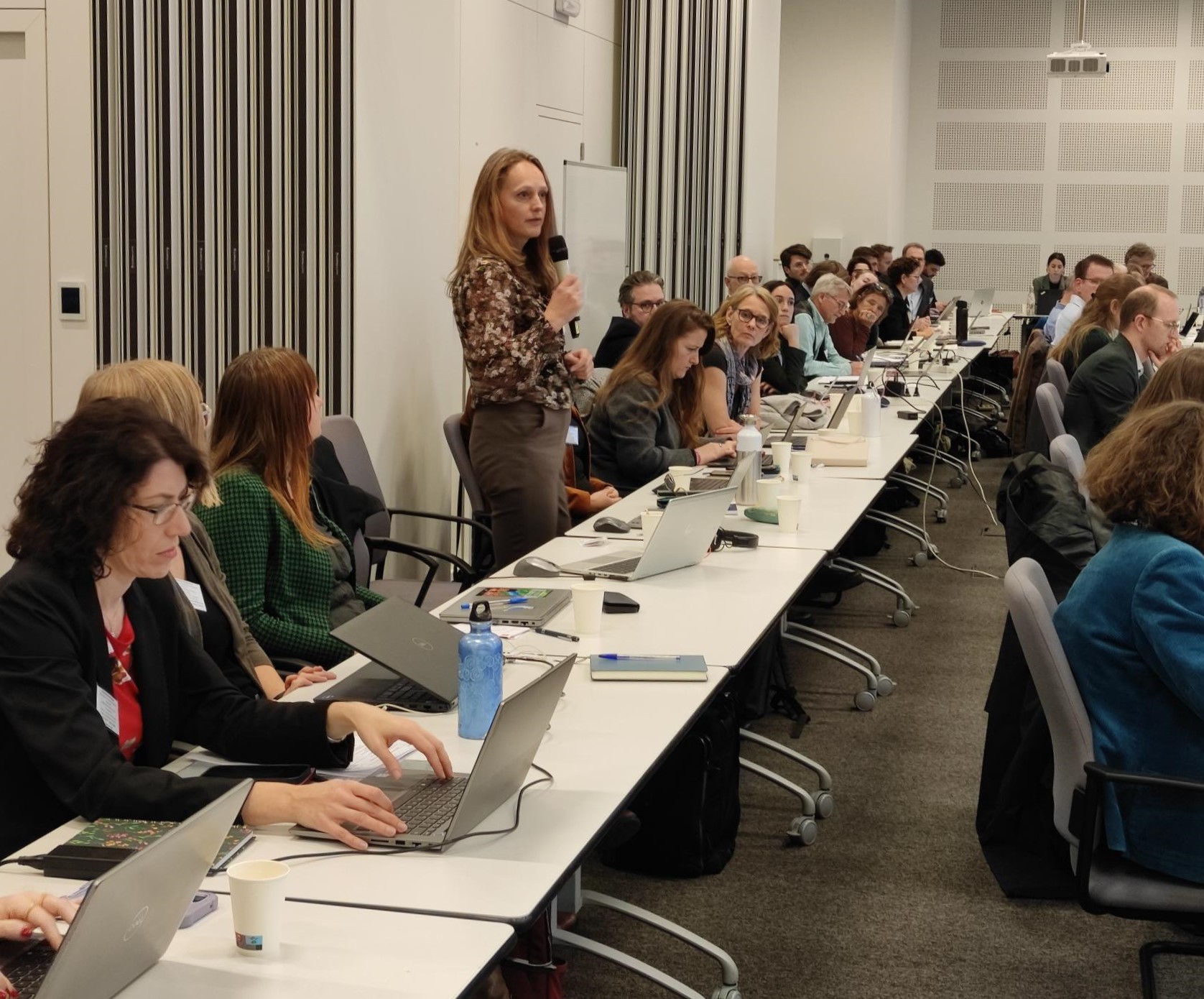On October 14, EFA participated in a stakeholder workshop focused on the evaluating the National Emissions Commitments Directive (NECD). Organised by the European Commission’s DG Environment, the workshop brought together various organisations, national authorities, industry representatives and policymakers engaged in tackling air pollution across the EU.
The NECD, along with the Ambient Air Quality Directive (AAQD), forms a foundational element of the EU legislative framework addressing air pollution. It establishes national emission reduction commitments for five major air pollutants: nitrogen oxides, non-methane volatile organic compounds, sulphur dioxide, ammonia, and fine particulate matter. These pollutants, originating from sources like vehicles, industrial emissions, agriculture, and everyday products, contribute to smog, respiratory issues, and environmental harm, impacting the air we breathe daily. EU Member States are responsible for reporting their progress towards these commitments on a regular basis.

While NECD has contributed to the overall reductions of the five pollutants since its adoption in 2016, European Environment Agency data show that as many as 11 Member States failed to meet their pollution reduction commitments for 2020-2029. In addition, methane (CH4), a pollutant with significant health impacts on lungs and airways, remains outside the Directive’s scope.
Health as a priority in NECD’s future
During the workshop, attendees agreed that there have been significant changes in the policy context since NECD first entered into force in 2016. However, given the persistent burden of air pollution, most stakeholders insisted that health must be the highest priority under the NECD evaluation and potential future revision.
 Represented by Board Member Christine Strous (from our Dutch member organisation Longfonds) and Senior Policy Advisor Panagiotis Chaslaridis, EFA joined fellow organisations of the EU Healthy Air Coalition in calling for urgent action on clean air. Citing the Netherlands as an example, Christine mentioned that 1 in 5 asthma cases in the country is caused by air pollution. Patients with respiratory diseases face major complications during pollution peaks, including more frequent doctor visits. Children are particularly vulnerable, with asthma cases on the rise due to worsening air conditions. WHO’s Air Quality Guidelines reinforce that swift and effective action on air pollution is possible.
Represented by Board Member Christine Strous (from our Dutch member organisation Longfonds) and Senior Policy Advisor Panagiotis Chaslaridis, EFA joined fellow organisations of the EU Healthy Air Coalition in calling for urgent action on clean air. Citing the Netherlands as an example, Christine mentioned that 1 in 5 asthma cases in the country is caused by air pollution. Patients with respiratory diseases face major complications during pollution peaks, including more frequent doctor visits. Children are particularly vulnerable, with asthma cases on the rise due to worsening air conditions. WHO’s Air Quality Guidelines reinforce that swift and effective action on air pollution is possible.
Increased evidence on the health impacts of pollutants, including those like black carbon - a harmful byproduct of burning fossil fuels, biomass, and wood was a recurring theme at the workshop. Black carbon contributes to poor air quality and can penetrate deep into the lungs, posing severe risks for respiratory and cardiovascular health. Addressing such pollutants, currently not covered by the NECD, will require stronger communication and collaboration between the scientific community, stakeholders and policymakers.
Strengthening NECD’s links with climate, energy and health policies
Workshop participants have also noted the need for NECD to reinforce synergies with relevant climate, energy and industrial policies. As Christine said, NECD should also align closely with the revised AAQD, which is flexible to incorporate new scientific evidence – an adaptability NECD currently lacks. It is essential to link NECD with healthcare systems : a future-proof system will require fewer resources if the influx of patients affected by air pollution is reduced.
For policymakers, a major challenge for the future will be ensuring a clean air transition in the various polluting sectors, including transport, industry and heating and cooling. Stakeholders in the room emphasised that the cost analysis should include health indicators, such as the benefits from better health associated with improved air quality.
Together with our colleagues in the EU Healthy Air Coalition, EFA is committed to bringing the voices of allergy, asthma and COPD patients to the next steps of this crucial legislation for air pollution in Europe.
Public consultation now open: a double public consultation process for the evaluation of NECD is officially open for feedback until 26 November.